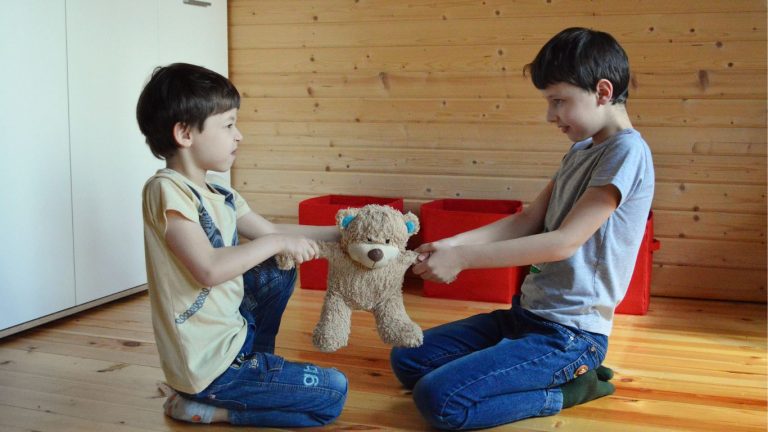Thank you to all the lovely people who have sent me “real” questions about their daily lives as parents. I will answer them in the order they arrived
| Dear Diane, Our nearly three year old is a joy, and very interested in the Maisy books. She not only has an imaginary friend named Tallulah, but now the rest of the gang have arrived: Cyril, Charlie, Eddie and occasionally Maisy. (I suspect Maisy’s low profile is to ensure our girl is still in charge). How long does this phase last? Anything we can do to hasten it along? We know better than to finish them off but the novelty has gone for us.A further question: any tips for dealing with death in close family for very young children? We have had 4 close relatives die in a year and our small person is starting to look forward to going to heaven herself, which is pretty distressing. Any ideas on either topic gratefully received!We really love your books and have found your time out strategies spot on, so many thanks!
Kim |
Dear Kim,
It is absolutely normal for young children to have imaginary friends. It is often their way of exercising their imagination, having on-tap company or even getting a bit of control in their lives.
“Having imaginary friends” can also be a response to stress in a small person’s life as it may give them some relief from the real world and – a repeat of the previous paragraph – some way of seeming to control the uncontrollable world around them.
I would like to suggest a way that will help your three-year-old deal with the stresses that may have come into her life through you, her and everyone around her dealing with the loss of four close relatives – not to mention her dealing with people “vanishing” on her.
I have found “book-writing” a wonderful way of helping children deal with all sorts of stresses in their lives. It is the kiddie equivalent of using a journal to write out our woes and come to terms with them. While we adults are in the middle of a stressful situation, we are carried along by the process and have very little time to reflect on what is going on. Afterwards, we make sense of what happened by telling the story over and over again until we have understood and integrated what happened. When we have done that enough, the need to tell the story often goes way.
While writing “the story” about the loss of each close relative, you have a chance to make sense of what happened, for your daughter. You also have a chance to choose the words and ideas you want your daughter to remember. Thirdly, you give her a way of going over and over the story – I promise you that you and everyone else who comes into the house will have to read the story many times- until she has understood and integrated the information. You will know when that happens because she will abandon the book.
Write it in the third person. Begin with “Once upon a time a beautiful little girl was born. Her name was ….. She lived with …… Other people who loved her were…. Add details about her pets and her interests.
Try to keep it nearly as simple as the Maisy books. One idea per page. Your can make it an electronic work of art or you can use a scrap-book, felt-tip pens and stick-figures. I favour the simplest approach possible because it doesn’t appear to make any difference to children. The thing that counts for them is that is their story and about them.
Then starting with “One day an awful thing happened”, tell a little bit about the particular loss and grief that happened. Finish off with a few wonderful memories about the person that she can always treasure. And all good story books finish with “…and so they lived happily ever after. The End.”
Parenting Singletons!
| Hi Diane, I would love any advice that Diane could offer on parenting only children. My boy is 6 and has always been a delight, always responded well to time out when needing disciplining, and generally has been a joy to be with.We have managed to get through several years of explaining why he doesn’t have any brothers and sisters and I think perhaps he has finally accepted this.
The problem at the moment seems to be with friends. What I have always thought was ‘great leadership’ seems to be turning out to be ‘wanting to dominate all play with friends’. What I seem to be seeing is that he doesn’t seem to know how to play along side other children in that he always wants to play what he wants to play, when he wants to play it and the way he wants to play it!! He gets very quickly upset when the other children don’t want to do what he wants to do. I often get little stories home from school that so and so wouldn’t play with him today. It turns out that it is because he wanted to play something else and so got all upset. Please help. He is a delightful, bright, social boy and I thought I had managed to teach him to play nicely and share. We get children over to play all the time and I visit friends with their children all the time as well so that he has someone to play – he gets very lonely. Any advice on other issues that we may face parenting a singleton would be very welcome indeed. Thanks marshe |
Dear Marshe
When we have an only child, it is very easy and natural to play the game he wants to play, let him go first, let him win and finish as soon as he shows signs of having had enough.
So, one of the things singletons can miss out on is the rules and strategies around “how do we decide which game to play, who goes first, whose turn is it, how do I win gracefully and how do I lose gracefully.”
Our job as parents of a singleton is to deliberately give him the experiences that he would get naturally as a sibling. Some of these we can do alone as parent and child. Some of these we can practise when he has friends over. Both of these approaches will serve him well when he is in the classroom and the playground. (By the way, this issue is not confined to parents of singletons. Lots of parents with more that one child still find themselves with one child who finds it extra hard to be a good sport when it comes to sharing, playing a game he may not necessarily like so that you he can be with his friends and learning how to be a gracious winner and a gracious loser.)
When it is just the two of you, agree you will play two games, one that he chooses and one that you choose. Write down both games. Devise a system for who goes first (other than the youngest goes first.) If he starts to be a bad sport during “your” game, pop him in his room until he is ready to resume play.
When he has friends over, be prepared to supervise and to keep an ear up for when it is getting too hard for him. Help them write down what they want to play and decide which order they will proceed. Watch for when it is all becoming too much for your son and decide whether they need a change of activity or everyone needs some “down-time.” If you hear things getting a bit heated, intervene with morning tea to see if a break means that they can start up again.
Just tell yourself, “He may be six on the outside, but he hasn’t had six year’s of experience at playing with other children, so he needs a bit of extra help just now.”
The Fridge and the 3 Year Old
| Hi Diane, We never had this problem with our first 2.. and I’m so sure she does it for attention as she only heads for the kitchen when I finally sit down from cleaning.. she tips the milk all over the floor, takes bites out of the cheese, tips sauce everywhere.. and usually even wipes it all through her hair??? We had a fridge lock.. but she’s not slow enough for that anymore and just pulls it open.I left Mr with the kids for a weekend while attending a funeral down the line and when I came back he had nailed a big square piece of wood across the kitchen door so she couldn’t get in and had written ‘Keep Out’ on it!She has only just turned 3 in April and has been doing this since a definite early 2 years old .. she is the cutest thing in the whole world, but cute wears off quickly when its covered in yoghurt.. Help!
mumof3 – almost4 |
Dear Mum of Three – almost Four
One of the issues that we have with cute kids is their ability to deliberately do something wrong and then look at us with a meltingly gorgeous look that says, “I know that I am not supposed to do this but you won’t mind because I am so adorable!”
This also gets compounded if she is also the youngest because we feel like experienced parents who know what they are doing and we don’t take all off parenting with quite the earnestness we did with the first two. (Believe me that this comes from the heart. I am the mother of three – the last after an eleven year gap and absolutely loaded with charm.)
The trick is to get over having tolerated the behaviour for over a year and decide that you will not tolerate it any longer.
Stay alert for the first sign of mayhem in the kitchen. Scoop her off to her room without a word. When you get there, say very crossly, “Now I’ve got a lot of cleaning up to do. You stay here till I’ve finished.” Go and clean up slowly and in peace. When you are ready, just open the door, saying, “I’ve finished tidying up. You can come out now!”
She need to know – through experience – that you will not let her get away with deliberately naughtly behaviour, without there being a quick and powerful response of Time Out.





